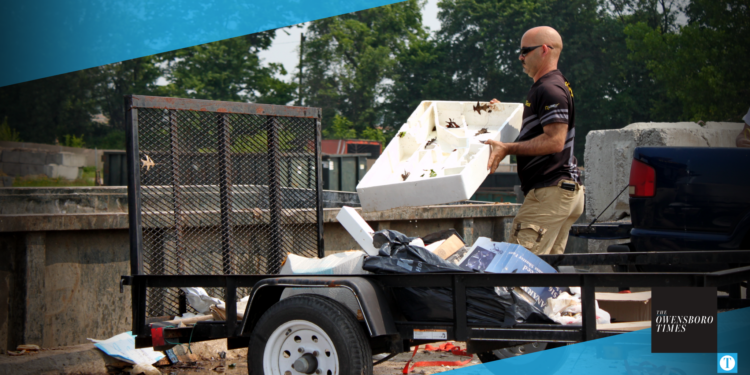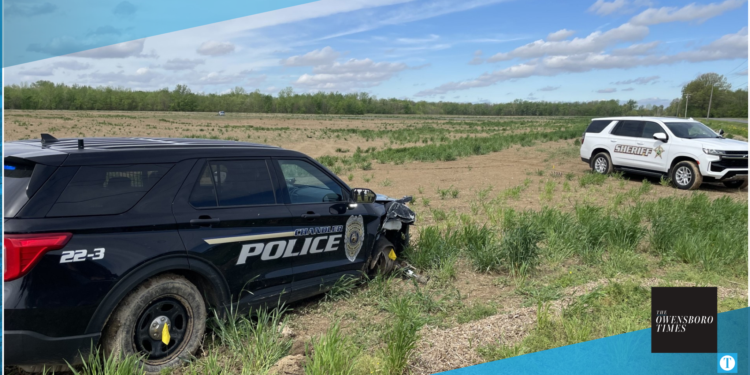The Daviess County Fiscal Court announced that it will be making a $2 million investment at the Grimes Avenue Transfer Station in the upcoming Fiscal Year.
Of that investment, more than $1.6 million will go towards improving the Convenience Center, where non-commercial haulers unload their waste. The center, which currently has four spots for vehicles to pull in, will be expanded to 16 spots on a raised platform.
Another $360,000 will be used to replace the tipping floor and $32,000 will be used to replace the inbound scales.
Brian Lanham, supervisor of the Grimes Avenue Transfer Station, explained why a majority of the investment is being put in the Convenience Center.
“We have a small unloading area now and it has grown to the point where we need to expand that facility,” Lanham said. “The ultimate game plan is to alleviate some of the traffic congestion.”
Lanham said that although the construction may cause minor delays when it gets started, he does not predict it will prevent anyone from hauling their waste to the station.
This announcement comes shortly after a decision was made to redirect the hauling of all construction and demolition debris (CD&D) loads larger than a pickup truck directly to the landfill starting July 3.
After the decision was made many in the construction industry expressed their concern about the decision’s potential negative effects on construction in Owensboro and Daviess County.
At the last Fiscal Court meeting, the County’s director of legislative services David Smith said the decision had to be made, citing that they don’t have the employee capacity to handle the volume of debris being delivered.
Lanham echoed that statement Wednesday.
“We had our crews stay here last night until 6 o’clock just to get the construction debris out of the parking lot and back into the building,” Lanham said.
When asked why no money was invested towards technology or solutions that would allow large loads of CD&D to continue to be delivered to the transfer station, Judge-Executive Charlie Castlen said that after speaking with consultants, it was clear there was nothing they could do.
“When we had our consultants come in they advised us that nobody else that they deal with even takes CD&D at their transfer stations and that it all goes to the landfill,” Castlen said. “We were an anomaly with regard to that.”



